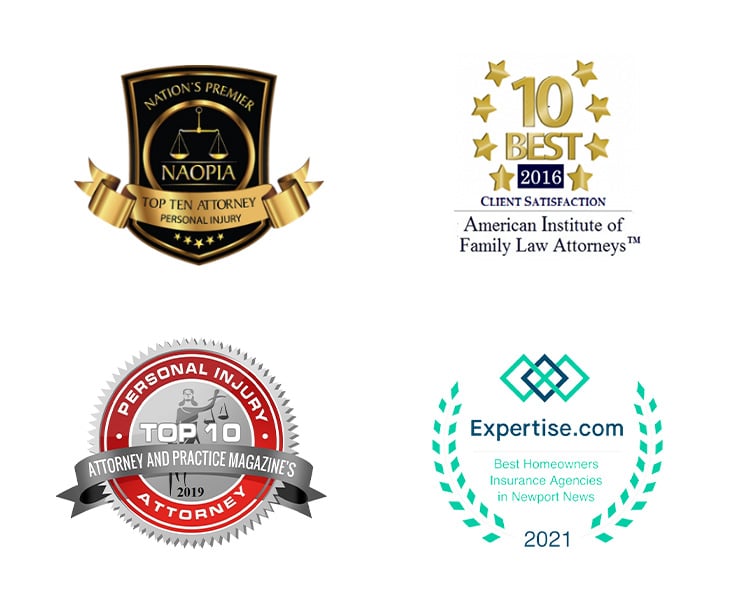If there's one thing that most families can agree on, it's that losing a loved one is tough. It's a grief-stricken time often filled with sleepless nights and free-flowing tears. Between notifying friends, planning funeral services, and working through your own emotions, the thought of Estate Administration is the last thing on your mind. But you know something must be done. You feel obligated to do something about your family member's estate but aren't sure how to proceed or when to do it. You're probably wrestling with hard-to-answer questions like:
- What Happens with My Loved One's Estate?
- What Happens During the Estate Administration Process?
- How Long Will It Take?
- Do I Receive Compensation for My Time?
- What State is Probate Taking Place?
That's where Cobb Hammett comes in - to help guide you through the complicated processes of probate court in South Carolina. Because the truth is, probate can be confusing and intimidating if you're ill-equipped to deal with the court's procedures and inner workings. There is legal paperwork to draft and file, petitions to publish, notices to serve, bonds to file, and a long list of rules that you must adhere to during this time. With a probate lawyer in Glendale, SC, by your side, however, you can rest easy knowing your loved one's assets are protected, and their legacy is legally preserved.
Service Areas
What is a Probate Attorney in Glendale, SC?
When someone passes away, their assets have to be distributed according to South Carolina state laws and the directions in their Will. Your probate lawyer will be a significant source of help in this regard, as they will guide an executor of a Will or Beneficiaries of an estate through the often-confusing probate process. From identifying notating estate assets to distributing inheritances, your probate attorney is a crucial partner during this difficult time in your life.
At Cobb Hammett, our probate attorneys understand that when a client's loved one dies, they need a caring presence by their side. But they also need a confident source of knowledge that can act on their behalf as they grieve. That's why, given the complex nature of probate law, it's a good idea to have a trusted attorney on call who can settle an estate and handle the nuanced issues that arise in probate court.
- Walk You Through the Aspects of Your Probate Case
- Prepare and File All Necessary Paperwork by the Mandated Deadlines
- Help You Stay Abreast of Requirements and Responsibilities
- Identify Estate Assets
- Help Pay Debts and Bills
- Transfer Assets to the Appropriate Parties
- Assist with Estate Disputes
- Resolve Income Tax Issues
- Advise You of Your Rights
- Remain Prepared and Organized to Help Reduce Your Stress
Administering a decedent's estate can be a long, arduous process. That's especially true if disputes are involved with Beneficiaries. When you consider the chances of being held liable for decisions you make as a Personal Representative of an Estate, working with a probate lawyer from Cobb Hammett Law Firm just makes good sense.

About The Cobb Hammett Law Firm Difference
As seasoned probate lawyers in South Carolina, we understand that Estate Administration often involves sensitive family dynamics as much as it does the legal minutia involved in probate law. After all, a person's estate not only affects their generation but the generations that follow.
But when your loved one passes, their assets must be managed and distributed correctly. When mismanaged, disputes often arise between parties like the Beneficiaries, Trustees, Heirs, or Executors of a Will. Even when everything is managed the right way, arguments and misunderstandings can still occur, and even evolve into bitter legal battles necessitating probate litigation.
It stands to reason, then, that you should hire a probate lawyer in Glendale, SC to help. But the truth is, many attorneys don't have vast experience with probate and trust work. If they do, they aren't usually seasoned trial attorneys. That's what separates probate attorneys at Cobb Hammett, LLC from others - we have the ability to help plan your Estate and litigate estate disputes if they arise.
We are keenly familiar with local probate judges, courtroom staff members, and the related procedures involved with South Carolina probate law. Our intimate knowledge and experience help us successfully navigate the probate process to complete our client's cases quickly and efficiently.
But that's just one aspect that sets Cobb Hammett apart from other firms. Understanding the importance of personalized attention, we also make an intentional decision to limit our law firm's overall caseload. This allows us to better focus on individual clients, many of whom remain with us for generations. We do not pass off cases to paralegals or junior associates but rather prioritize the attorney-client relationship. We value compassion and integrity, and our practice reflects those values.
Moreover, trust is one of the most important aspects of the attorney-client relationship. We work to create an open, friendly environment in which you can feel comfortable. After years of experience, we boast the skill and experience necessary to earn that trust - and that's a priceless commodity when it comes to probate cases in South Carolina.

Our attorneys love probate and estate-related legal services, including but not limited to the following:

Estate Administration
When our probate lawyers assist with Estate Administration, our team prioritizes efficacy and efficiency to ensure all tasks are accomplished correctly and on time. That way, our clients endure less stress while looking good in front of family members.

Estate Disputes and Litigation Cases
When an Estate is disputed and requires litigation, Cobb Hammett probate attorneys fight to win on our client's behalf. From holding unfaithful Executors accountable to contesting Wills, our team searches for the best way to achieve our client's goals.

Trust Administration
Things get more complicated in probate cases where Trusts are involved. To ensure that the terms of the Trust are met and handled correctly, our team works closely with clients to advise them on how to proceed.

Trust Disputes and Litigation Cases
Every Trust is different. By proxy, every Trust dispute must be handled in a unique manner. After a careful analysis of the Trust and South Carolina law, our team will determine the best strategy to achieve our client's goals.
Understanding The Probate Process in South Carolina
When a loved one passes away, it's natural to go through a time of emotional adjustment. However, it's crucial for the family of the loved one to face the financial realities of their estate. That reality includes the probate process, which involves distributing assets and settling the estate. A probate attorney in Glendale, SC is often recommended to assist during this time. This process isn't just recommended - it's often a legal responsibility in South Carolina.

Steps to the Probate Process in South Carolina
Delivery of Will Upon Death: During probate, the first step involves having a will delivered to an Estate Administrator or to the probate court. The deadline to accomplish this task is 30 days.
A Personal Representative is Assigned: This individual is often named in a Will and should be appointed officially by the court.
A Notice is Sent to Intestate Heirs: If these heirs feel that they should inherit, they have a right to challenge this step.
The Estate is Inventoried and Appraised: This process must occur within 90 days of opening an estate. In some estates with valuables like jewelry, art, and property, professional appraisers may be needed.
Settling Accounts: During this step, the estate must pay any applicable taxes, ongoing expenses, or outstanding debts. Should the estate not have enough money to pay these debts, creditors must be paid according to South Carolina code.
Distributions: If there is money in the estate after debts are paid, those funds are given to heirs of the estate, according to the Will or the State.
Discharge: As soon as any claims are paid, the personal representative of the estate will file documents to close the estate. To make this official, the court will issue a Certificate of Discharge.

Avoiding Probate in South Carolina
Though most estates in South Carolina must go through probate, it is possible to avoid. This happens when a decedent's assets are placed in a Living Trust prior to their death. In this scenario, beneficiaries must be designated in order to inherit the estate. Suppose there are funds that have been promised to beneficiaries via life insurance policies or bank accounts with "payable upon death" designations. In that case, those funds do not have to go through probate.
Assets subject to probate in South Carolina include:
- Interest in an LLC, Partnership, or Corporation
- Real Estate Held as a Tenant in Common
- Property Held in Only the Deceased's Name


Assets that are not subject to probate in South Carolina include:
- Assets Placed in a Trust
- Assets Which Are Already Tied to a Beneficiary
- Pension Plan Assets
- Insurance Policies with Beneficiaries
- Beneficiaries of Retirement Funds
- Real Estate or Property with Right of Survivorship
- Real Estate or Property with Joint Tenancy
- Accounts That Are Transferable or Payable Upon Death

Avoiding Probate: Yes or No?
Though it's not always possible, some families go out of their way to avoid the probate process in South Carolina. Doing so can help save money in the long run and also expedite the distribution of funds to heirs. By avoiding probate, you're also keeping personal matters private.
Because every person has different estate and probate complexities, it's hard to say whether avoiding probate is good or bad. Whether or not you should avoid probate depends on your unique situation. As a general rule, it's always best to consult with a probate lawyer in Glendale, SC, for honest feedback and probate assistance.
Typically, having a Living Trust or a Will in place will make transferring assets easier. A little prep ahead of time will make a world of difference when your loved one passes away. After all, nobody is ever prepared for a relative or family friend's death, but a compassionate, trustworthy probate attorney can make the process easier.
FAQsSouth Carolina Probate FAQs
For many families, "Probate" is a dirty term that involves heartbreak and headaches. And while the probate process in South Carolina can be complex and stressful, having answers to some of the most common probate questions can help put your mind at ease.
My family member recently passed away, and we're considering their estate. How long will the probate process take?
The time it takes an estate to go through probate in South Carolina varies depending on a number of questions, including:
- Does the deceased have a valid will?
- Is the Estate complex or large?
- Is the Will contested?
- Have any lawsuits been filed?
- Is the personal representative of the estate efficient?
When conditions are good, a small or simple estate usually takes about a year to close. More complicated estates may take longer.
My loved one mentioned opening a Trust to protect my assets. What is a Trust, and what Trusts should I consider?
As is the case with most probate decisions, opening a Trust should be based on your unique situation and guidance from your probate attorney in Glendale, SC. With that said, a Trust is meant to hold property for your loved one's benefit. When a Trust is created, assets are transferred into the said Trust and managed accordingly. Though there is a common misconception that Trusts are reserved for the wealthy, just about any family can benefit from opening a Trust.
The most common types of Trusts used in probate include:
- Living Trust: These trusts are opened and controlled by you while you're still living. When you pass away, the assets in the trust are distributed to the beneficiaries you choose. Typically, these trusts do not go through the probate process.
- Testamentary Trust: These trusts are usually established after you pass away and are included in your will. These trusts must go through the probate process in South Carolina, though they allow for the distribution of property within a certain time frame.
- Special Needs Trust: This type of trust gives financial support to your loved one if they are disabled.
When conditions are good, a small or simple estate usually takes about a year to close. More complicated estates may take longer.
What happens when somebody dies without a will in South Carolina?
When a person passes away without a Will in South Carolina, the state decides who gets their decedent's assets. This is also called passing intestate. When this happens, usually only spouses, blood relatives, or registered domestic partners can inherit property according to intestate succession laws.
Relatives who receive the probate property of the deceased are usually chosen in the following order:
- Living Spouse
- Children or Grandchildren
- Parents
- Brothers or Sisters
- Grandparents
- Uncles and Aunts
- Extended Family
If you're in need of a veteran probate lawyer in South Carolina, look no further than Cobb Hammett Law Firm. With years of experience in Estate Administration and probate cases, our team is ready to serve you with excellence and protect your interests. Have additional questions? We're here to help. Contact our office today to learn more about Estate Administration in South Carolina.
Legal Consultation
Law is complicate matter. It can cause you a big problem if you ignore it. Let us help you!
A Caring, Confident Approach to Probate in South Carolina
Planning your estate is the first step to take if you want to protect your family, your assets, your well-being, and the fruits of your hard work.
At Cobb Hammett, LLC, our team of experienced probate lawyers in Glendale, SC, can help you navigate the entire Estate Administration process. Through creative legal strategies and a clear understanding of your goals and desires, we work together to make your asset and estate visions a reality. It's never too early to get your estate in order. In fact, estate planning is important for everyone, whether you're single or married, young or old, with or without children. If you're ready to protect your assets and be prepared for probate, contact Cobb Hammett, LLC, today.
Disclaimer:

,


 843-936-6680
843-936-6680